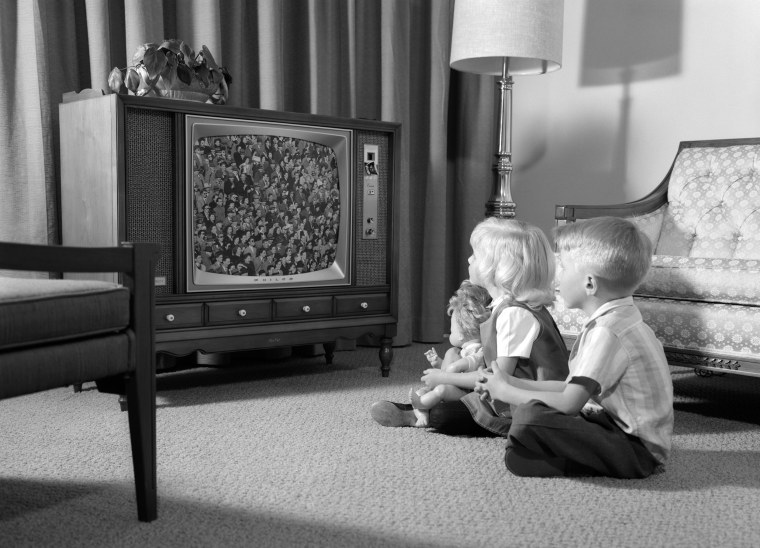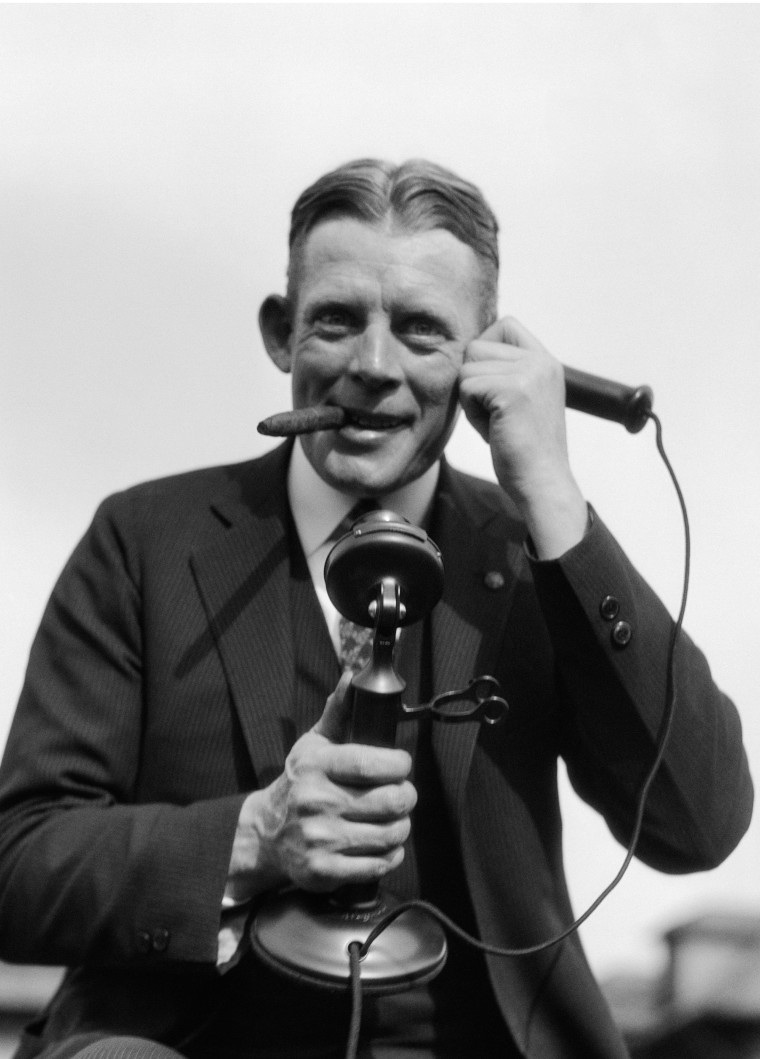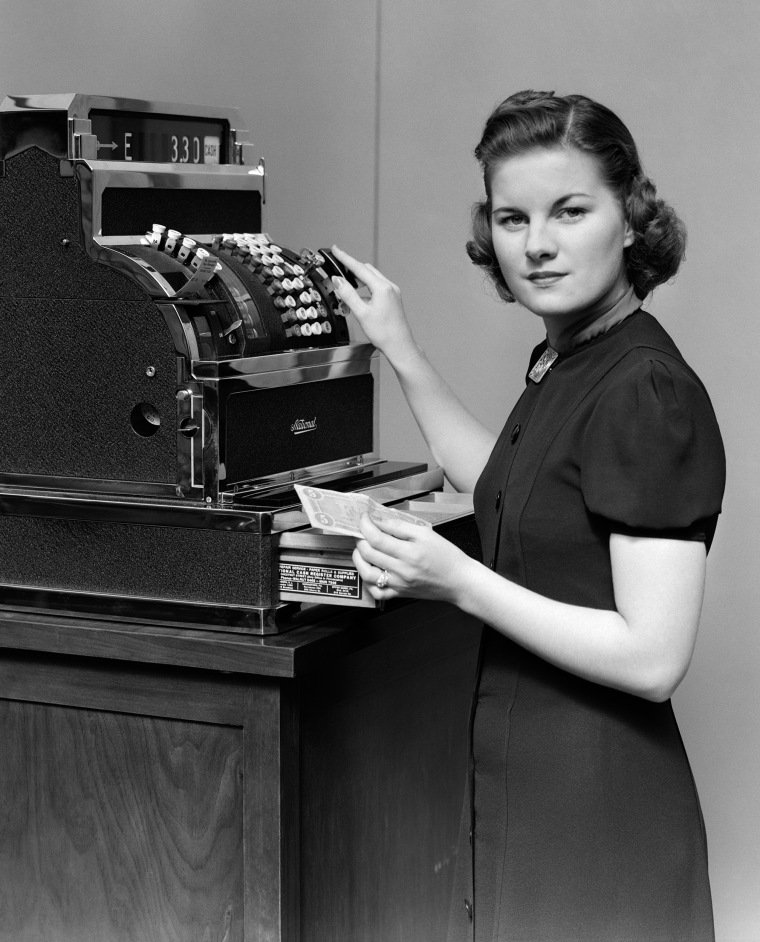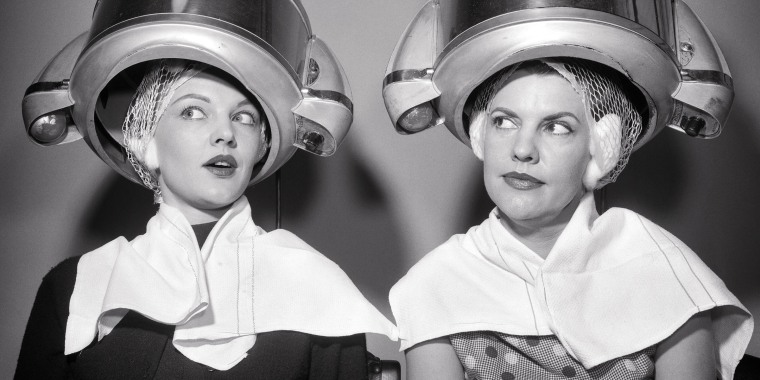In the past 24 hours, Reddit users have been pondering the question posed by user DragonWizardKing, “What are some phrases that no longer accurately reflect the action, like 'rolling' down a window?”
The thread has over 9,000 comments, with each user sharing their own example of the now obsolete terms and idioms and where they originated.
Here are 16 other common phrases that no longer reflect the action:
1. "Wrap it up" and "That's a wrap"
"'Wrap it up” or ‘That’s a wrap!’,” one user, rollbackprices, shared. “Referred to wrapping up the film roll after a shot.”
This phrase originated to signal the end of filming for the day or the scene.
2. "Filming"
"'Filming' with a digital camera," wrote user Dee-Lite.
3. "Footage"
“Let's also talk about the term ‘footage,’” user Syscrush added to the thread about filming. “That would be a measure of how many feet of film had been shot.”
Early 35 mm silent films were measured in feet and frames. There are approximately 16 frames in a foot of 35 mm film, which would translate to about one second of screen time. In early silent films, footage was made a natural unit of measure for film, and the term was used to describe moving image material of any kind.

4. "Dashboard"
“Dashboard - originally, a dashboard was a barrier of wood at the front of a horse-drawn carriage to protect the driver from mud or other debris 'dashed up' by the horses' hooves,” user slippy51 shared.
The original dashboards were put at the front of a carriage or sleigh to catch the mud or water thrown up by a horse’s hooves. Today, it’d likely be called a “mudguard.”
5. "Put a sock in it"
"Meant putting an actual sock into the trumpet of a gramophone," the user Enfmar wrote.
The colloquial British phrase originated in the 20th century as a way of silencing whatever was making noise with a sock. There are suggestions that it was the horn of an early gramophone or, simply, a person’s mouth.
6. "Turn it down a notch"
“’Turn it down a notch.’ Back when TV volume knobs had notches on them,” toneconn shared in the thread.
7. "Hit the hay"
"‘Hit the hay’ came around when beds were made of hay, and you had to hit the hay to get the bugs out before going to sleep,” pperiesandsolos shared.
In the late 1800s and early 1900s, people would sleep on cloth sacks stuffed with hay. Before they’d go to bed, they’d physically hit the hay stuffed sacks to make their makeshift mattress more comfortable and to ensure no bugs were inside.
8. "Sleep tight"
User shrutinidamarthi shared the believed origin story of “sleep tight.”
“Before the days of modern mattresses, beds were square frames elevated from the ground, with ropes tied across in a sort of weave,” they wrote. “It was similar to a hammock in concept. Anyway, in order to sleep well, the 'mattress' couldn’t sag, so the bed had to be ‘tight.’”
There are many theories for this phrase, but a common origin story dates back to when mattress were supported by ropes. In order to have a sturdy bed, the ropes would need to be pulled tight.

9. "Turn the lights on/off"
User mere_iguana gave a background on the term “turning lights on or off.”
“Before electricity, you had gas lamps to light up your house, streets, etc. you would turn a gas valve open/shut to have the lights on/off,” they wrote. “After electricity pervaded, people kept saying "turn off the lights" (partly also because most early electric lamp switches were rotary switches, meant to mimic the action of gas valves, so you would actually still "turn" them off) .. since then it has expanded to mean just cutting off power to pretty much anything. Even people get turned on or turned off these days.”
Before the days of electricity, many people were able to have gas lamps in their rooms and could manually control them by turning their gas valve on and off.
10. "Stay tuned"
“It's a term from when the main form of entertainment was radio and you actually had to tune a physical dial to a certain frequency," goldbrownbearhug wrote.
On radio, before television, you would have to manually turn a dial to find your favorite radio station. The origin of stay tuned, by definition, is to keep listening to the radio broadcast, even after a commercial break.
11. "In the limelight"
"In the limelight. Actors used to be literally in limelight. Not been that way since a century. Learnt this trivia in 10th standard when learning about various everyday compounds including lime," wrote one user.
Limelight is an intense white light which is produced by heating a piece of lime (the chemical compound, not the fruit) in a flame of burning oxygen and hydrogen. The figurative use, to people or things that were the center of attention, came into use around the turn of the 20th century.
12. "Peanut gallery"
A peanut gallery was, in the days of vaudeville, a nickname for the cheapest and ostensibly rowdiest seats in the theater, the occupants of which were often known to heckle the performers. It's a term that has faced recent scrutiny for its classist origins following worldwide protests over the police killing of George Floyd.

13. "Hanging up the phone"
"Or 'dialing' it," added Scrappy_Larue.
14. "Getting on a soapbox"
"People don't get on actual soapboxes now," added user Damn_Dog_Inappropes, before asking, "What even is a soapbox??"
The term originates from the days when speakers would elevate themselves by standing on a wooden crate originally used for shipment of soap or other dry goods from a manufacturer to a retail store.
15. "Cha-ching!"
"The 'Cha-Ching!' sound meaning money - from an old-timey cash register," user kchaus pointed out.
"That's a great one," added another user. "The 'cha-ching!' noise is such a part of speech that I barely even think about it as being related to a cash register I wonder if the phrase 'dollar signs in their eyes' is also related to old-fashioned cash register functions."
16. "Floppy disk"
"It's not a phrase, but the little save icon is still a floppy disk," wrote user doinmybest4now.

